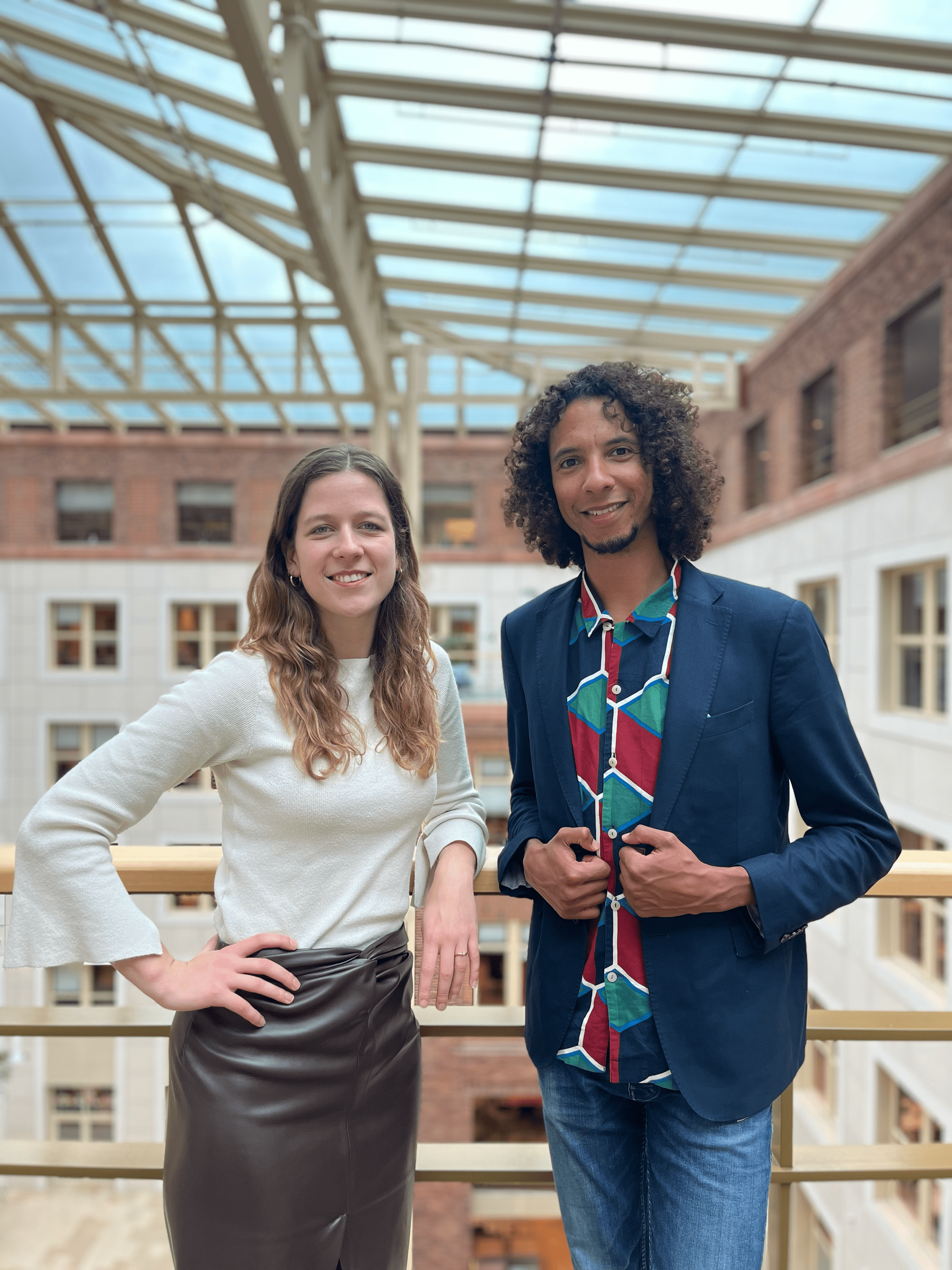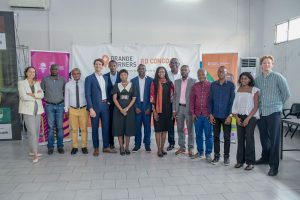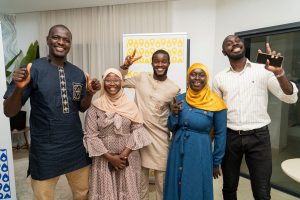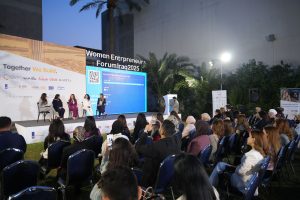Sudan holds immense potential. Recently however, the country has mostly made international headlines because of the ongoing conflict that has disrupted the lives of nearly everyone in the country. Despite these difficulties, the Netherlands has maintained its commitment to Sudan. Marjolein van Uden (Private Sector Development Advisor for Sudan) and Ramiro Gomes Monteiro, Orange Corners Advisor for Sudan, discuss ongoing projects, lessons learned and the avenues still open for making impact in Sudan.
Welcome Marjolein and Ramiro! Let’s start with an introduction: who are you and what do you do?
Marjolein: I work as Private Sector Development Advisor at the Netherlands Enterprise Agency (RVO), focusing on Sudan. In my role, I work closely together with Ramiro and the Netherlands Embassy in Sudan to develop strategies and projects related to private sector development. I also chair the RVO Sudan country team, where colleagues working on programmes in Sudan come together to exchange information, challenges and best practices.
Ramiro: I work for Orange Corners, where we’re passionate about strengthening entrepreneurial ecosystems. We support young and innovative entrepreneurs with training, access to finance, mentorship and networks to ensure they have the highest chance of succeeding and can contribute to more prosperous, inclusive and sustainable societies.
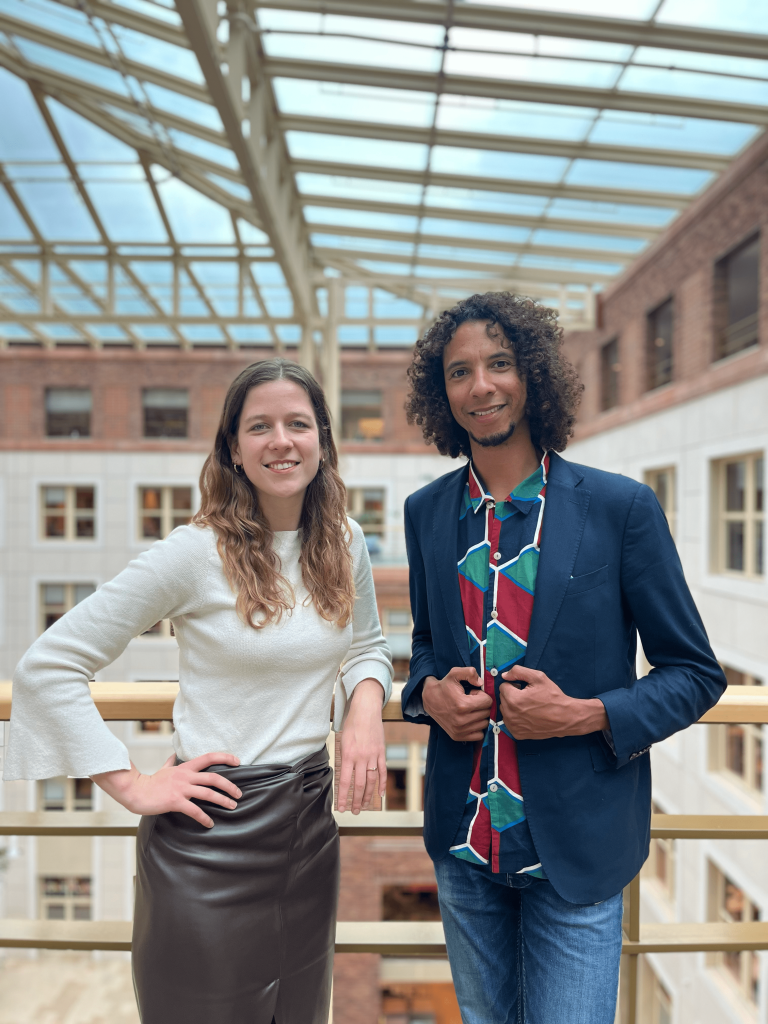
Marjolein, could you tell us a bit more about what kind of projects you work on and why you do what you do?
Marjolein: private sector development is crucial for economic development and to create employment opportunities, but also to achieve impact on challenges such as food security and water management. In a situation where public services are limited, we’ve seen the private sector in Sudan step up and provide services and products to those in need. When the inflation skyrocketed, for example, companies gave food packages to their employees.
We run several projects with Sudanese partners. For example, the Resilience Rises project supports women entrepreneurs across Sudan to develop their skills, collaborate and expose them to new markets. Projects like this have direct impact: as a result of this project, we saw women entrepreneurs team up to upscale together. This way, entire communities receive access to new products. And together with Wageningen University and the Sudanese private sector we’re trying to develop new food products based on local climate-resilient crops.
The involvement of Sudanese partners is key in all our projects. Via them, we receive input and ideas regarding what’s still possible and how we can still achieve impact. Through our work, we support them as best we can.
The involvement of Sudanese partners is key. Through our work, we support them as best we can
Marjolein van Uden, Private Sector Development Coach for Sudan
Ramiro, how does Orange Corners tie into this?
Ramiro: In Sudan, we’ve been implementing Orange Corners since 2018, together with our implementing partner 249Startups and the Sudanese private sector. We count some of the country’s largest private sector companies among our partners. They support our programme financially and in-kind, by contributing mentors, business masterclasses and partnering with our startups. We regularly meet with these partners, making Orange Corners an important platform to better understand the needs of the Sudanese private sector in these challenging times.
Since the war broke out last year, we’ve doubled our efforts to combine Orange Corners with other initiatives. For example, 249Startups worked with Marjolein to set up Resilience Rises. And Enigma AI, run by Orange Corners alumni, got an assignment to create an AI tool that women across Sudan can use to get basic business support services for their startups. This benefits thousands of Sudanese entrepreneurs.
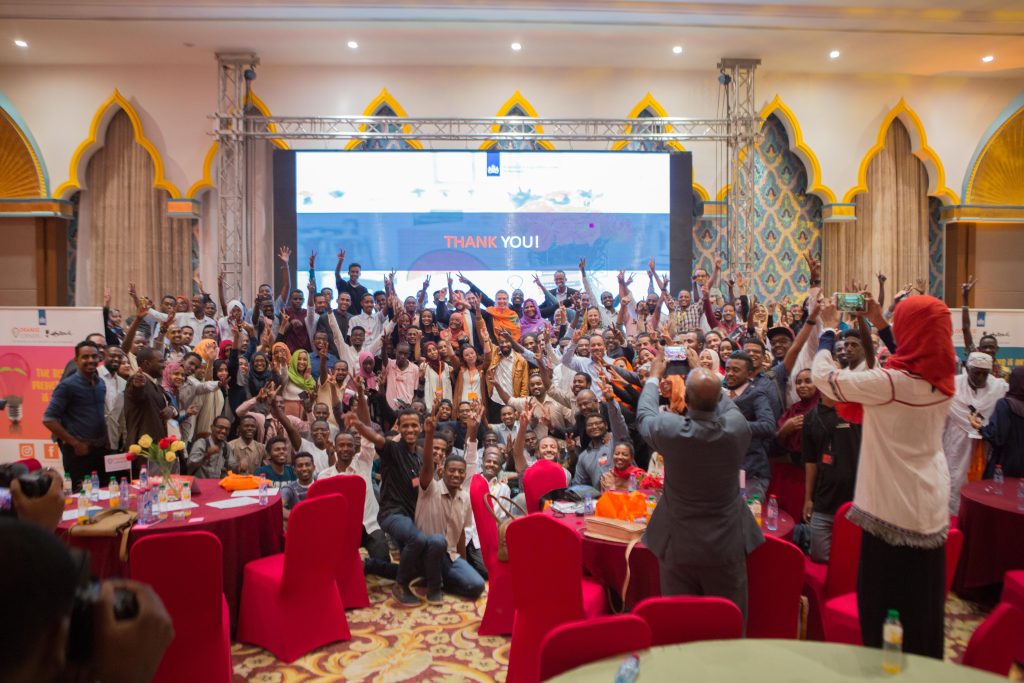
How was your work affected by the outbreak of war?
Marjolein: when the war started in April 2023, everything paused for a couple of days. But as soon as they got themselves to safety, our Sudanese partners wanted to focus on how we could still continue our work. We really saw the resilience and spirit of the Sudanese people here. We received a new idea for a project supporting entrepreneurs in the north of Sudan almost directly after the conflict broke out. They organised a big bazar where female entrepreneurs could showcase and sell their products. The huge crowd that attracted made the local municipality realise how much economic potential female entrepreneurs have. As a direct result, a female entrepreneur received a permit to operate on the regular market, which previously was only done by men. This shows that despite the terrible situation in Sudan, we can still contribute to actual impact on the ground in a safe way.
After the conflict started, we really saw the resilience and spirit of the Sudanese people. Within days, on-going projects continued, and new projects were proposed responding to the challenges related to the war.
Marjolein van Uden
Ramiro: the day the conflict broke out, my whole reality shifted. Our embassy colleagues and our Sudanese partners were literally being bombed and shot at. Imagine receiving photos from a car riddled with bullets because someone you work with had to try and get water after being stuck inside a house with limited food, electricity and water for days. Those experiences immediately triggered me to jump into double action mode, in order to do what I could to help them survive. For example, contacting safety experts from Forth Global, sharing illustrated safety protocols that advise what to do in case of aerial bombings or the need to safely evacuate.
As a response to the conflict, we’re developing a holistic approach to support both the human and business aspects of organisations. This devastating war has impacted people everywhere, leading to trauma, stress and other challenges. The Orange Corners team in Sudan started a mental health coping mechanisms group, where more than 100 entrepreneurs and people from entrepreneurial support organisations talk to each other and stay mentally healthy and hopeful with business games, mindfulness exercises, live musical performances and access to psychosocial support. We’re also setting up projects that focusing on coping mechanisms within their own organisations. Because if you’re in a horrific situation like this war, you need tools to keep yourself and your team mentally stable to keep making impact.
Currently, we’re developing a project focused on doing business in conflict zones. Because of the war, many companies experienced logistic and financial challenges, some even had to relocate. This made their services less accessible and their businesses take on more risk. Together with two experts, Dr. Aisha Ahmad and Mr. Simon Wells, we develop tailored business risk reduction strategies for entrepreneurial support organisations and startups. To help them cope, survive and perhaps even thrive. So they keep providing services and products, from smart solar and IT solutions for farmers to supplying quality seeds or machinery.
Marjolein: as a result of the increasingly challenging environment we operate in, we’ve also increased contact with other international donors working on private sector development, such as GIZ, AICS and KfW. The impact we continue to make will hopefully also inspire others to restart their operations in Sudan.
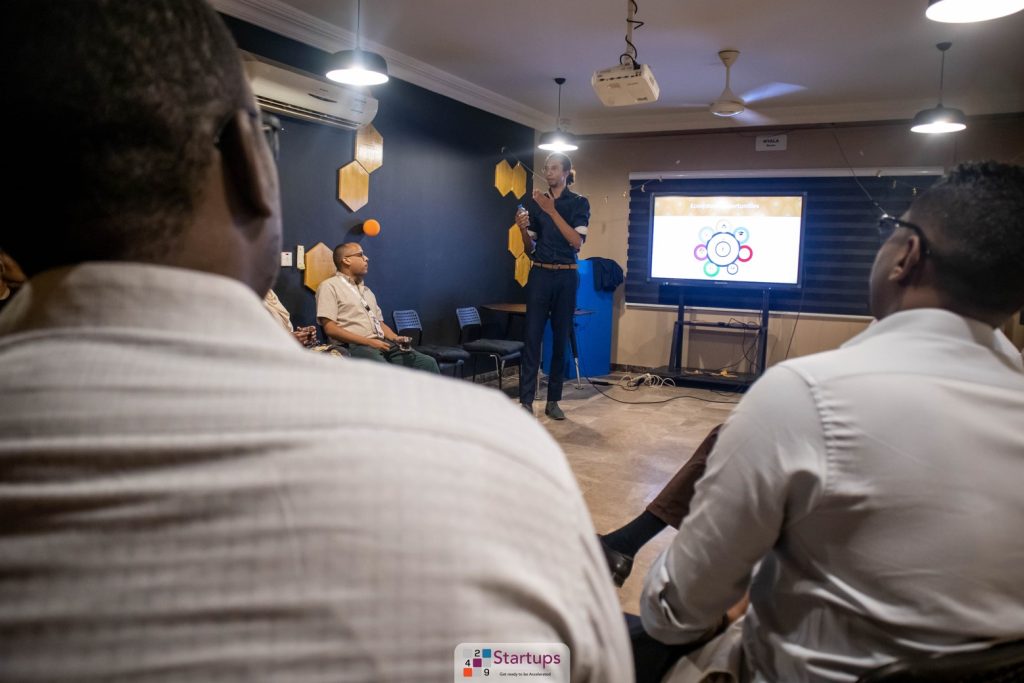

Why is it important that we keep investing in Sudan?
Ramiro: we shouldn’t underestimate the importance of empowering young people with the skills of turning their ideas and hopes into practice. The same skills entrepreneurs learn in order to run their businesses, from building teams to effective communication and providing solutions to their societies’ and markets’ needs, are also important to run effective organisations and institutions in peaceful, prosperous and inclusive societies.
I think there’s no more resilient and brilliant people than the Sudanese. We have plenty of examples of Orange Corners entrepreneurs who lost everything, relocated several times, and were still able to set up a new business elsewhere that’s servicing thousands of people with urgent needs in the fields of healthcare, food and energy.
We have plenty of examples of Orange Corners entrepreneurs who lost everything, relocated several times, and were still able to set up a new business elsewhere that’s servicing thousands of people with urgent needs in the fields of healthcare, food and energy.
Ramiro Gomes Monteiro, Orange Corners Advisor for Sudan
I’ve had the privilege to travel to many countries and meet hundreds of entrepreneurs. But every time I go to Sudan, I realise that if you can make it in Sudan, you can make it anywhere. The Sudanese are incredibly ambitious, innovative, smart, driven and focused on improving their country – that’s truly inspiring. And what we’ve built up in terms of relationships with young entrepreneurs and the private sector, and young people in general, is so valuable. These are the people that you’d want to work with in the future. People appreciate that the Dutch government choose to stay engaged during the revolution, the coup, and now the war. Even if we temporarily don’t have a physical presence, thanks to our great implementing partners we never ceased our activities. If we desert Sudan now, it would be a humanitarian crisis beyond anything we’ve seen in decades. A crisis that would affect the whole region and Europe in the future.
Marjolein: the Sudanese people are driven by innovation. With all the challenges they’ve endured, they’re always focused on solving problems and creating solutions. Investing in Sudan is investing in these people. Sudan has so much potential. Not just in human capital, but also in economic opportunities. Especially the agricultural sector, but also energy, particularly solar power. With our knowledge and expertise, such as Dutch agritech we could have huge added value here.
What would be your advice on how to still carry out programmes in this disabling environment?
Marjolein: the most important advice I’d give anyone who wants to become active in Sudan is to work with Sudanese partners. Especially in today’s circumstances. They know best what’s possible, what’s safe, who to work with. Trust them and their ideas. As Dutch organisations, we have good intentions, but they know better what works and what doesn’t.
Also be extremely flexible, because the plans you came up with yesterday might not be possible anymore tomorrow. I like to see our projects as investing in the organisations we work with, and not necessarily holding on tight to ideas, because the context in which those ideas could work might change from day to day. Determine with your Sudanese partner what you want to achieve, who you want to support and with what, and allow for flexibility and adaptability in the way the project is carried out. If you see opportunities, go get them. If you see challenges, try to come up with coping mechanisms.
And connect with other people working on Sudan. I have the pleasure of doing that with Ramiro, and there are more colleagues working on Sudan at the Netherlands Enterprise Agency. Because sometimes it can be quite challenging, seeing all the devastating news coming out of Sudan every day. We try to look out for each other, support each other and continue our work the best way we can.
You shouldn’t underestimate how much difference one programme, or even a few activities, can make in someone’s life.
Ramiro Gomes Monteiro
Ramiro: I agree focusing on outcomes rather than activities in your project plans is important, that’s how we internalise uncertainty in our projects. The activities can (and will) change due to unforeseen circumstances. In Sudan, they call this the Sudan factor. But if you focus on the outcomes and have good Sudanese implementing partners, together you can always find ways to reach those outcomes. And when we hear the results that our Sudanese partners and entrepreneurs achieve, we know why we keep doing what we do. You shouldn’t underestimate how much difference one programme, or even a few activities, can make in someone’s life. It gives hope in a country where youth have been disappointed time and again. It helps them believe in the Sudan they deserve. Every programme, every initiative, every conversation contributes to that.
Stay connected with Orange Corners Sudan. For more updates about our latest activities and projects, find us at:
LinkedIn
Facebook
Instagram
Curious about the value, strength and opportunities of private sector development and NL private sector development projects? Discover it here!

